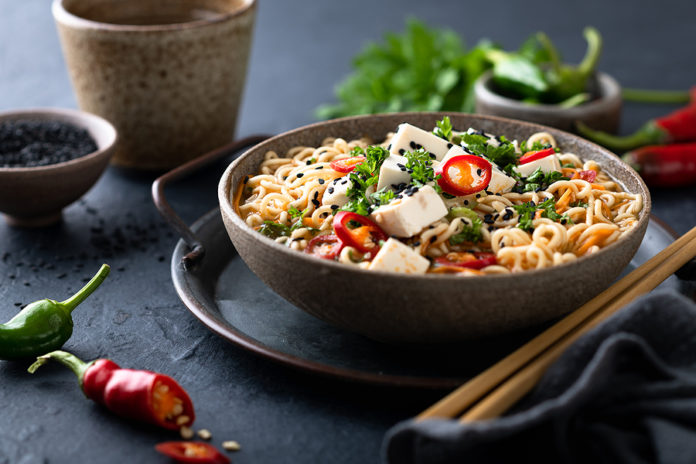
Upcycling is steadily gaining favor with consumers, especially as awareness of its environmental benefits and food waste prevention grows. That’s why Whole Foods named upcycled foods one of its top food industry trends of 2021, and why the upcycled food category has an estimated market value of $46 billion and a 5% CAGR.
But despite a growing demand, there remains the challenge of scaling up and turning the upcycled trend into a profitable business opportunity. To take a deeper look at upcycling and discuss its growing potential in the food and beverage space, Provision Coalition organized a webinar on November 23 — “Upcycled Food: Trend or Transformation?”
Creating the Upcycled Meal Kit
During the webinar, several companies shared their experiences with upcycling and creating the Upcycled Meal Kit, part of Canada’s first Upcycled Food Fest. The core ingredient of the meal kit was okara, a byproduct of tofu that’s typically disposed of or sent to animal feed. Okara’s warmth and moisture makes it difficult for handling and processing, but Sunrise Soya was determined to find a way to turn it into a usable ingredient.
Abokichi rose to the challenge and used the okara, as well as a byproduct of sake production, to produce ramen noodles for the meal kit. Bobby Khorasani, COO & Partner at Abokichi, shared that retailers have already expressed interest in this ramen product. “Upcycling is powerful to the consumer,” he said. Consumers want to make a difference, he added, and one way they can make a significant impact is by reducing food waste.
Vision Bakeries took the okara and found a way to bake it into muffins. Vineet Jain, Vision’s CEO, said the first challenge was getting the okara to their plant and maintaining its shelf life. They received it at room temperature, stored it frozen, and brought it out 24 hours before use. The okara also created lumps in the batter, which Vision solved by rethinking the mixing process and adding the okara during dry mixing. They also tapped into the expertise of their scientists to mask the soy flavor and create a better-testing product.
To wrap up the kit, Nature Knows provided the vegetables, which they packaged in a compostable pouch designed to keep them fresh 50% longer than plastic packaging. The company also created compostable packaging for the rest of the kit, giving it a 12-day shelf life.
 Scaling up upcycled food
Scaling up upcycled food
Kamal Baig, Director of the (Re)Purpose Incubator at Provision Coalition, emphasized that overcoming the key barriers to upcycling — cost, lack of in-house knowledge, and scalability — requires whole ecosystem collaboration. To create that ecosystem and successfully commercialize byproducts, Provision designed the (Re)Purpose Incubator:
- Step 1 is quantifying the food waste. It starts with finding out how much byproduct a company produces and how much they can reasonably capture and direct toward new products.
- Step 2 is a nutritional and economic analysis, which helps maximize the return-on-investment and overall value of the byproducts.
- Step 3 is product commercialization. This is the step where a go-to-market strategy emerges, with a goal of making the product as sustainable and circular as possible.
Jon Duschinsky, Executive Vice President of Provision Coalition, concluded the webinar with an answer to the question, “Is upcycled food a trend or transformation?” He suggested both — it’s a trend because it’s something consumers are asking for and excited about, and it’s a transformation because a model is emerging to scale it.
As for overcoming the cost challenge of turning byproducts into new products, data shows that consumers are willing to pay more for upcycled foods once they realize the value of such products. In Canada, 60% of consumers are already interested in buying upcycled food products.
Provision is helping with the cost issue as well. Although going through the (Re)Purpose Incubator is an international opportunity, there is currently funding available for six Ontario-based companies to turn their byproducts into marketable ingredients and upcycled products.







